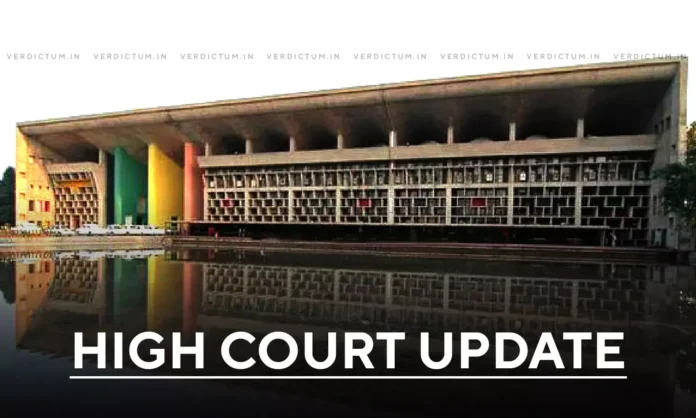The Punjab and Haryana High Court in the divorce case has deemed calling a husband a ‘hijra’ (transgender) an act of cruelty, a significant observation made during a recent divorce case. The Division Bench of Justice Sudhir Singh and Justice Jasjit Singh Bedi upheld a family court’s decision to grant divorce, citing this behavior as cruel and damaging to the marital relationship. The ruling came in response to an appeal from the wife, challenging the divorce granted in favor of her husband.
Cruelty in Marriage and Divorce : Husband Called ‘Hijra’
The case revolved around accusations made by the husband’s mother, who testified that her son’s wife frequently referred to him as a ‘hijra,’ which means transgender. The bench observed that terming her husband in such a derogatory manner and claiming his mother had given birth to a transgender amounted to cruelty. In their judgment, the court emphasized that such remarks deeply hurt a person’s dignity and mental well-being.
“Calling the respondent-husband a ‘hijra’ and saying his mother gave birth to a transgender is an act of cruelty,” the court noted in its judgment, highlighting the negative impact such derogatory comments can have on a person’s mental state.

Additional Allegations of the Divorce: Porn Addiction and Physical Incompatibility
The husband also made several other serious accusations against his wife. According to him, she was addicted to pornography and mobile games. He alleged that she would demand he record the duration of their sexual intercourse and would mock him for not meeting her physical expectations. The husband claimed that his wife insisted sex should last at least 15 minutes and occur three times every night. He said she would often taunt him, claiming he wasn’t “physically fit to compete with her.” Moreover, the wife allegedly admitted that she had wanted to marry someone else.
These claims formed a crucial part of the husband’s argument that their marriage was irreparably damaged, further contributing to the court’s decision to grant a divorce.
Wife Denies Allegations, Claims Mistreatment by In-Laws
In her defense, the wife denied all allegations made by her husband. She claimed she had been unfairly evicted from her matrimonial home by her husband and his family. According to her, she had been subjected to mistreatment by her in-laws, who allegedly administered intoxicating substances to her. She accused them of putting a ‘tabiz’ (amulet) from a Tantrik around her neck while she was in an unconscious state, with the aim of controlling her.
The wife challenged the family court’s findings of cruelty, arguing that they were incorrect and unjust. Despite her arguments, the High Court ultimately upheld the earlier ruling in favor of the husband.

Irreparable Breakdown of Marriage
One of the key factors in the court’s ruling was the fact that the couple had been living apart for six years. After reviewing the case, the bench supported the family court’s observation that the marriage had deteriorated beyond repair. “The marriage has ruptured beyond repair, and it has become dead wood,” the court declared, making it clear that there was no chance of reconciliation between the two parties.
The judgment brings to light the serious issue of cruelty within marriages, especially when verbal abuse and demeaning language are involved. It also underscores how mental and emotional harm, as much as physical violence, can be grounds for divorce under Indian law.

